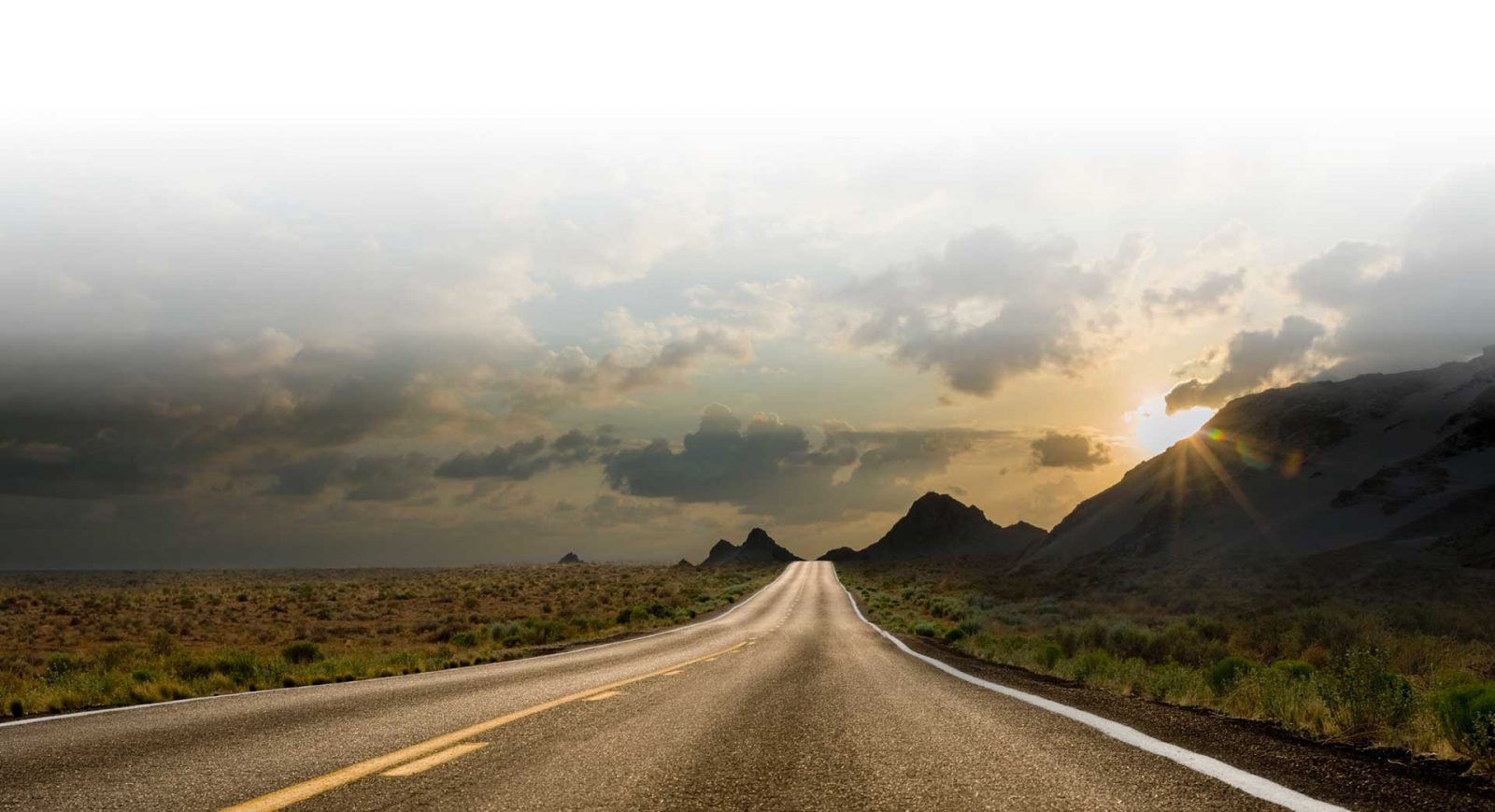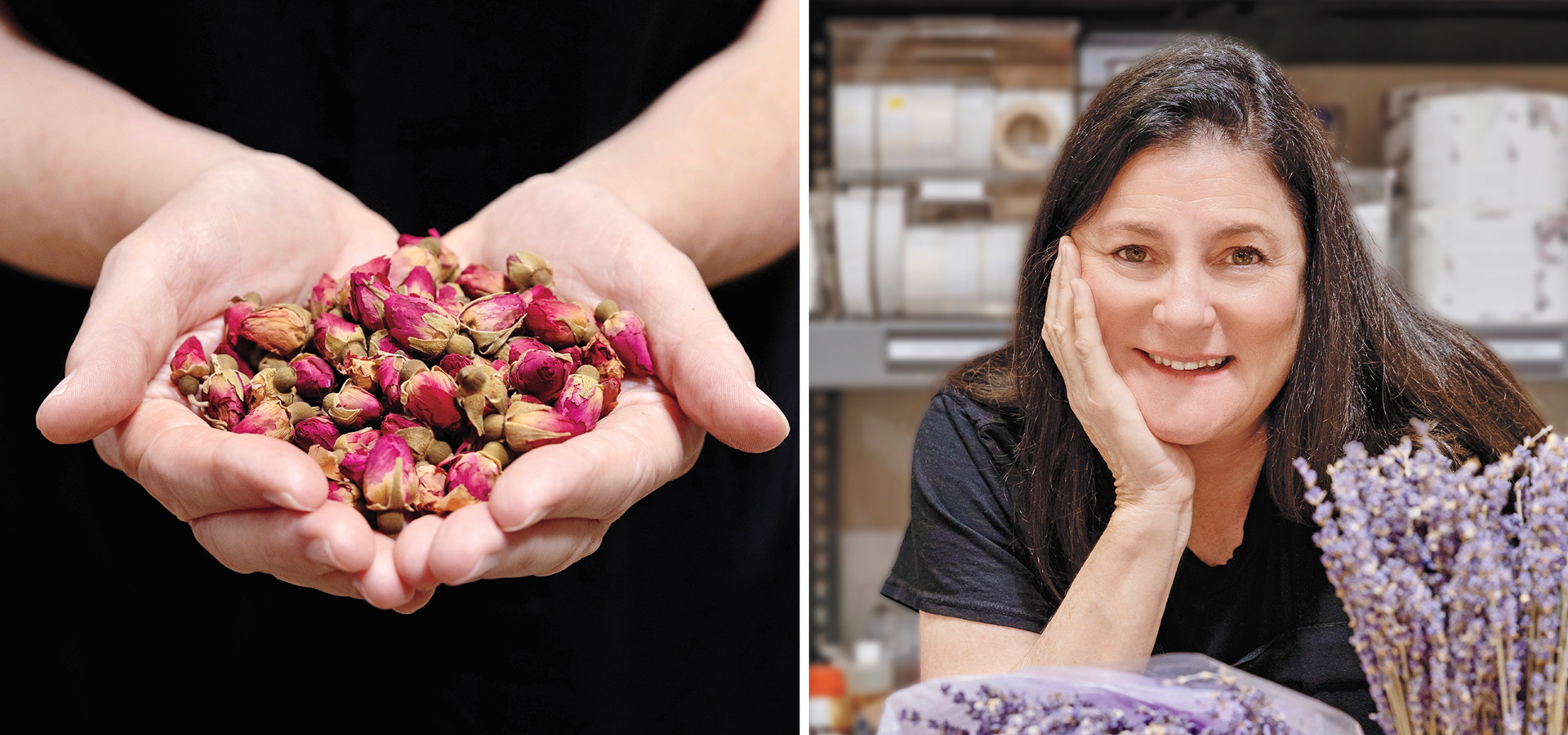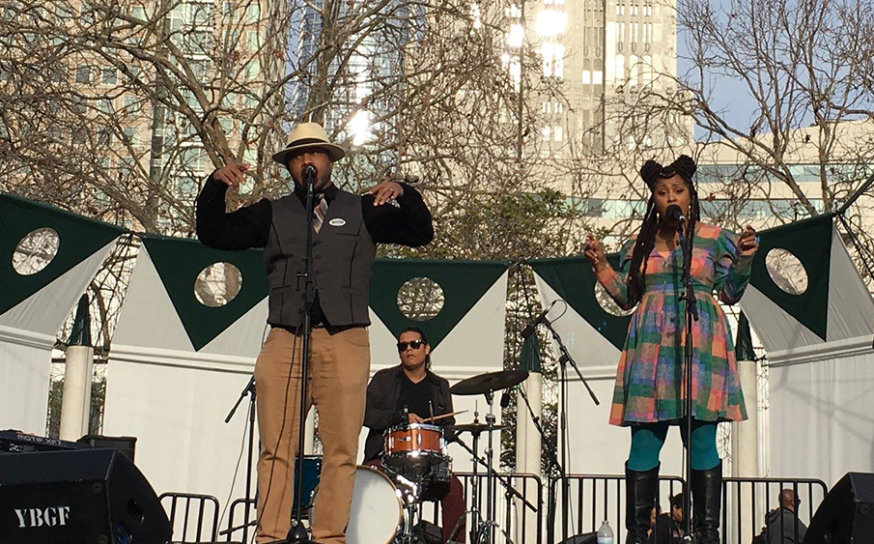An Incredible Sense of Smell Is Just One of Voyage et Cie Founder Melanie Apple’s Talents
Candlemaker extraordinaire.
-
CategoryArtisans, Makers + Entrepreneurs, Small Businesses
For Melanie Apple, creating intoxicating scents—and using them as the foundation for a line of candles—was the culmination of all her passions: art, fashion, design—and a love of all things French.
“I always had loved France. I’m originally from Montreal, so I started learning French very young. I’ve spent 20 summers in France. It’s just always been in my soul. You get up every morning and smell that lavender and orange blossom. You go to the flower markets and notice the way people smell. The men smell so good.”
Her love of France and travel are reflected in the creation and name of her company—Voyage et Cie—which translates to “Travel and Company.” In fact, she discovered several of the items she uses to make her candles during her travels. Voyage et Cie’s cotton wicks come from Egypt; its sandalwood comes from Australia; its lavender flower petals (used to make the oils that scent the candles) are from Luberon in the south of France.
In retrospect, Voyage et Cie would seem to be the perfect career for Melanie, yet her 20-year journey was circuitous. As the daughter of a fabric seller dad (he owned House of Fabrics in Sherman Oaks, located where there is now a Joann Fabrics) and a homemaker mom, Melanie attended The Buckley School in Sherman Oaks. She originally wanted to become a costume designer but “I just didn’t know how to get there. In those days, there was a push for everyone to go to USC. I wanted to go to Parsons School of Design in New York. They said, ‘Oh, no. No one really goes to art school.’”
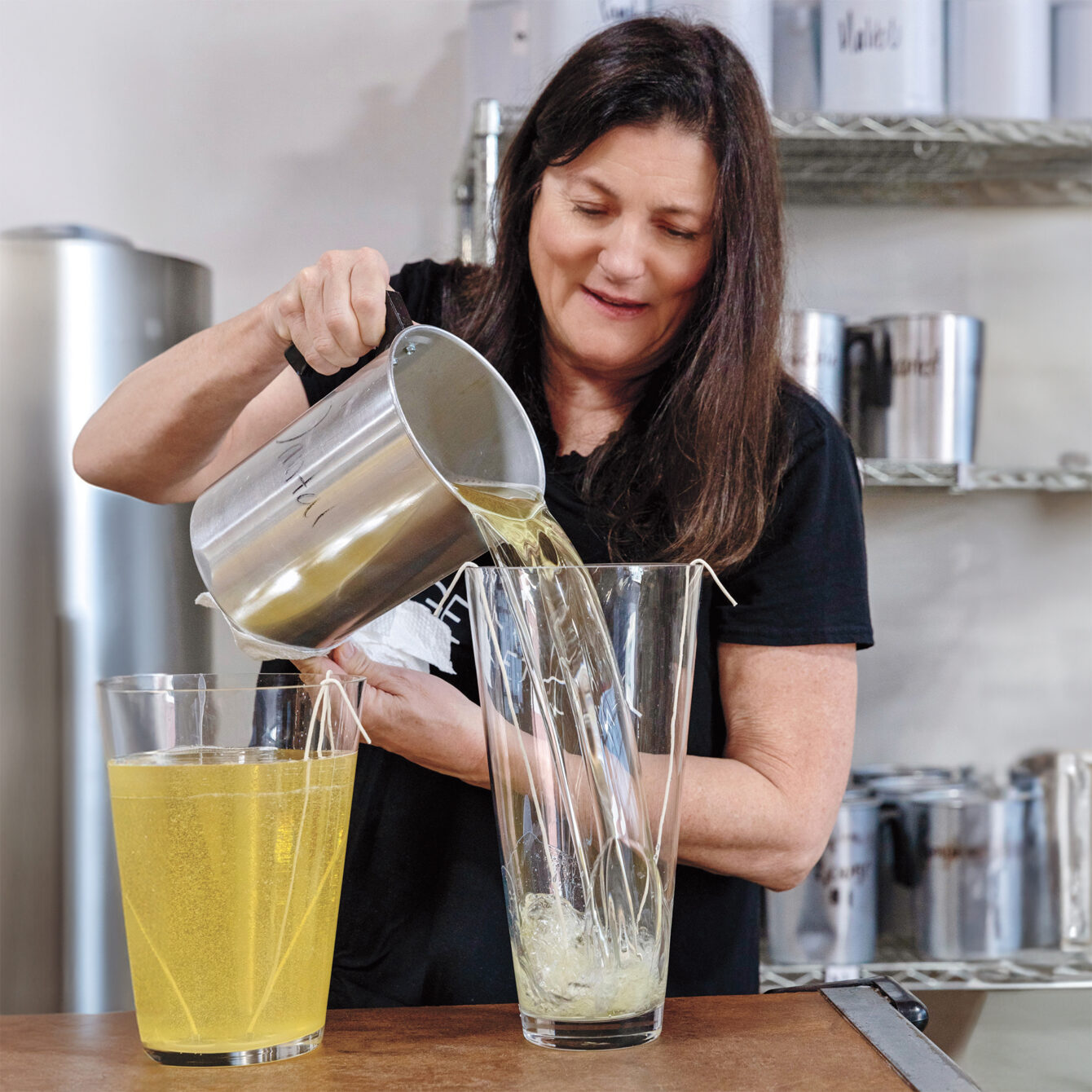
To appease her parents, she enrolled in USC, majoring in history. She satisfied her penchant for art by taking classes at the community school Every Woman’s Village in Van Nuys (which closed in 1999). At 22, she moved to France and enrolled in Sorbonne University for a year. Later, she got her way and enrolled in Parsons in Los Angeles.
It turned out to be a pivotal experience.
“It was the hardest thing I’ve ever done in my life. But it was fascinating. Anyone who goes to art school learns how to do everything—from building a chair to hanging a picture on a wall. I went from really not being able to do anything into being able to doing everything. I loved all of it.”
After two years, she transferred to the school of fashion École Supérieure Des Arts et Techniques de la Mode (ESMOD) in Paris, a city she ended up living in for nine years. After she graduated from ESMOD, she worked at several fashion houses including Christian Dior.
In 1991—back in the U.S.—she founded her eponymous clothing label with a line for women, made from body-hugging Lycra. She started with swimwear.
“No one was really using it here, and people would look at me kind of quizzically saying ‘Why does it have to stretch?’ I’d say, believe me, you’re going to love this fabric. It’s fantastic.”
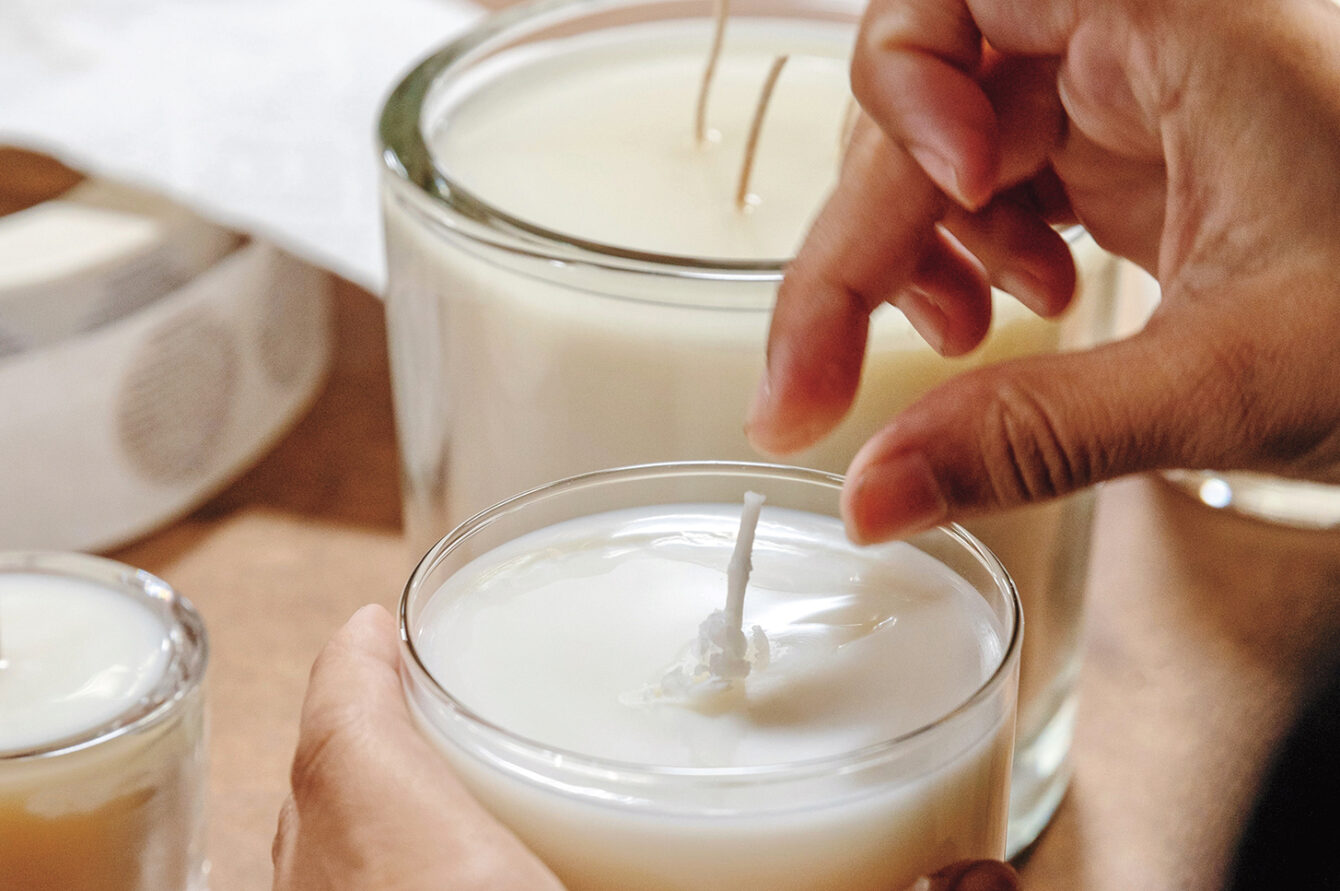
After just one year, the line, which eventually included a body suit, dresses, skirts and pants, took off with top-tier buyers including Neiman Marcus and Nordstrom. Melanie credits the explosion, in large part, to the material.
“It could transform into anything. In France people would wear a bathing suit, pull a skirt on, and then go to lunch. I wanted to create something like that with clothes that were easy to travel with and that you could hand-wash in the sink. So that’s what I did.”
“I still love creating, and that still includes new fragrances.”
The fashion line rolled along, and so did her personal life. In 1996 she married producer Simon Fields. Then, in 2004, a pivotal event occurred, sparking a life change.
“I’d just had a baby—our daughter Isabelle—and my mom died and I was just devastated. On top of that, the company had grown too big, too fast. We’d gone from being sold in small boutique stores to huge department stores. It was exhausting, and I couldn’t handle it.”
She started thinking about her love of and experiences in France. “Whenever I’d go back, there was that smell, the south of France, and I was just so moved by it.”
She enrolled in a perfume course in Grasse, the perfume capital of France, and once back in the States, started experimenting with fragrances. It was pretty down and dirty. “I was making candles with a double boiler in my laundry room!” she laughs.
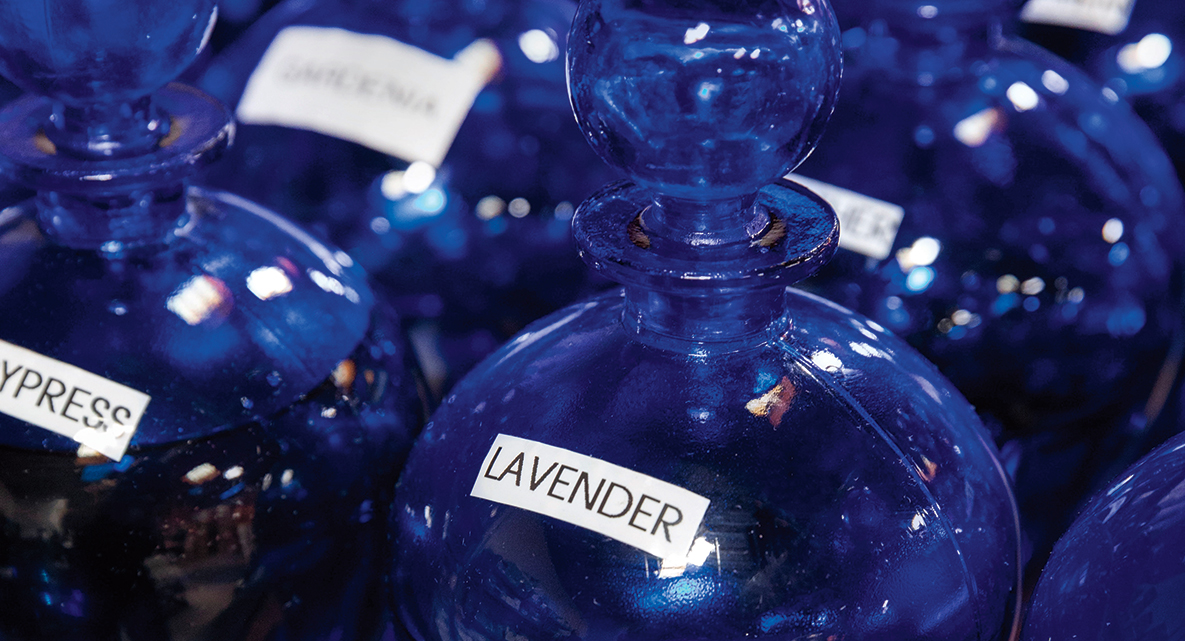
She also took a class at General Wax & Candle in North Hollywood but was turned off by its use of paraffin wax, which is distilled from petroleum, a by-product of gasoline production. When paraffin is burned it releases chemicals that have been linked to lung diseases such as cancer and asthma. “I thought, I can’t use paraffin. I don’t want that in my lungs.”
Soy wax, which releases fewer toxins, was one option, but soy-based candles don’t give off as much fragrance. Instead, she started adding coconut wax and apricot oil to her ingredients, discovering that the addition produced candles with a stronger and longer-lasting scent.
As she was wrapping up her clothing business, she attended one last trade show. As a thank-you, she gave her buyers candles made from violets imported from Grasse.
Some of those candles wound up burning in boutiques scattered across the U.S., and customers started commenting on them. The boutiques asked for more—not just to burn, but to sell. Before she knew it, the Peninsula Hotel in Beverly Hills was selling her candles at their spa. This turned out to be a game changer.
“They would burn the big candle we sell and the whole hotel would smell like it and all their clientele would ask ‘What is that?’ The Peninsula started ordering weekly. Then it would be a store in Florida or a store in Arizona, or whoever was staying there would say, ‘Oh, I have a spa. I have a retail store; I have a furniture store.’”
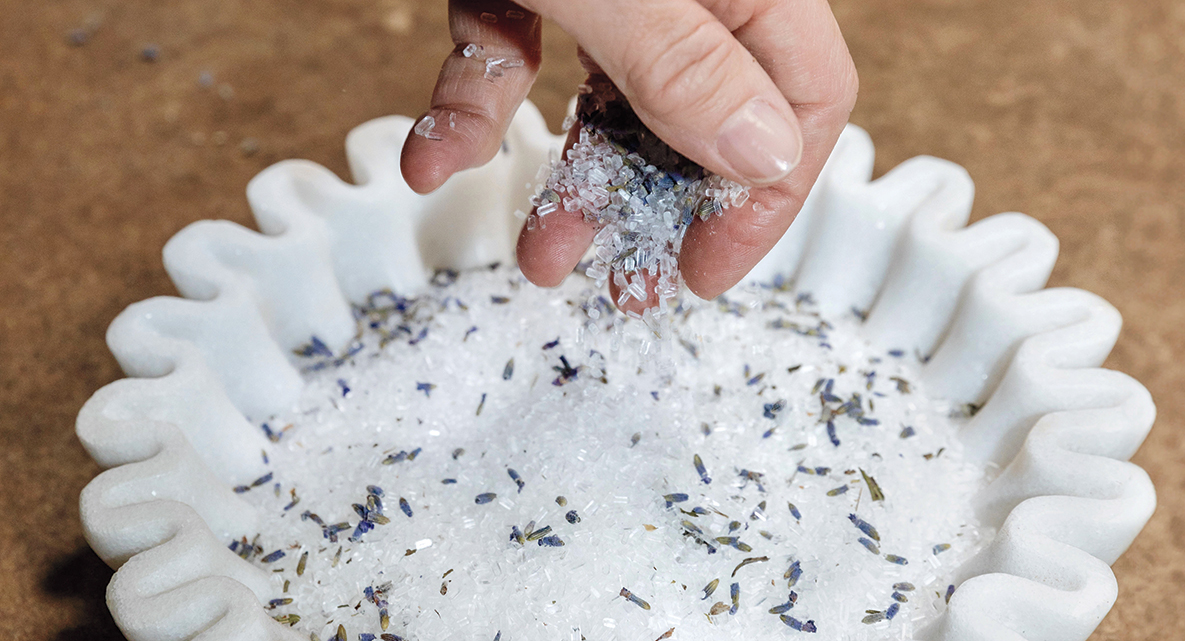
Today, 20 years later, the Peninsula remains a top client. Other LA hotels including Hotel Bel-Air, Shutters on the Beach and Casa Del Mar are also clients—part of a network of about 400 stores that sell Voyage et Cie candles.
In 2010 Melanie opened a retail store of her own, a tiny space tucked behind the Studio City commercial strip that includes Le Pain Quotidien and Dry Bar. Somewhat organically, people found it and began trickling in.
A few years ago the operation moved to a larger, more prominent spot in the same strip—the Ventura Boulevard space formerly occupied by Canyon Beachwear. Today the shop is filled not just with candles but perfume, a diffuser/oil line, laundry detergent, a line of face and body products, and a wellness line. The boutique also carries gift items such as coffee table books and journals.
Candles, though, remain the core of the business, which now employs 14 people and is headquartered at a 5,000-square-foot facility in Downtown LA. “I still do the actual candlemaking myself,” Melanie shares. “The percentages of oils have to be perfect. And when you have the clientele I have, you have to be a control freak.”
She says she finds Voyage et Cie infinitely more satisfying than her clothing line.
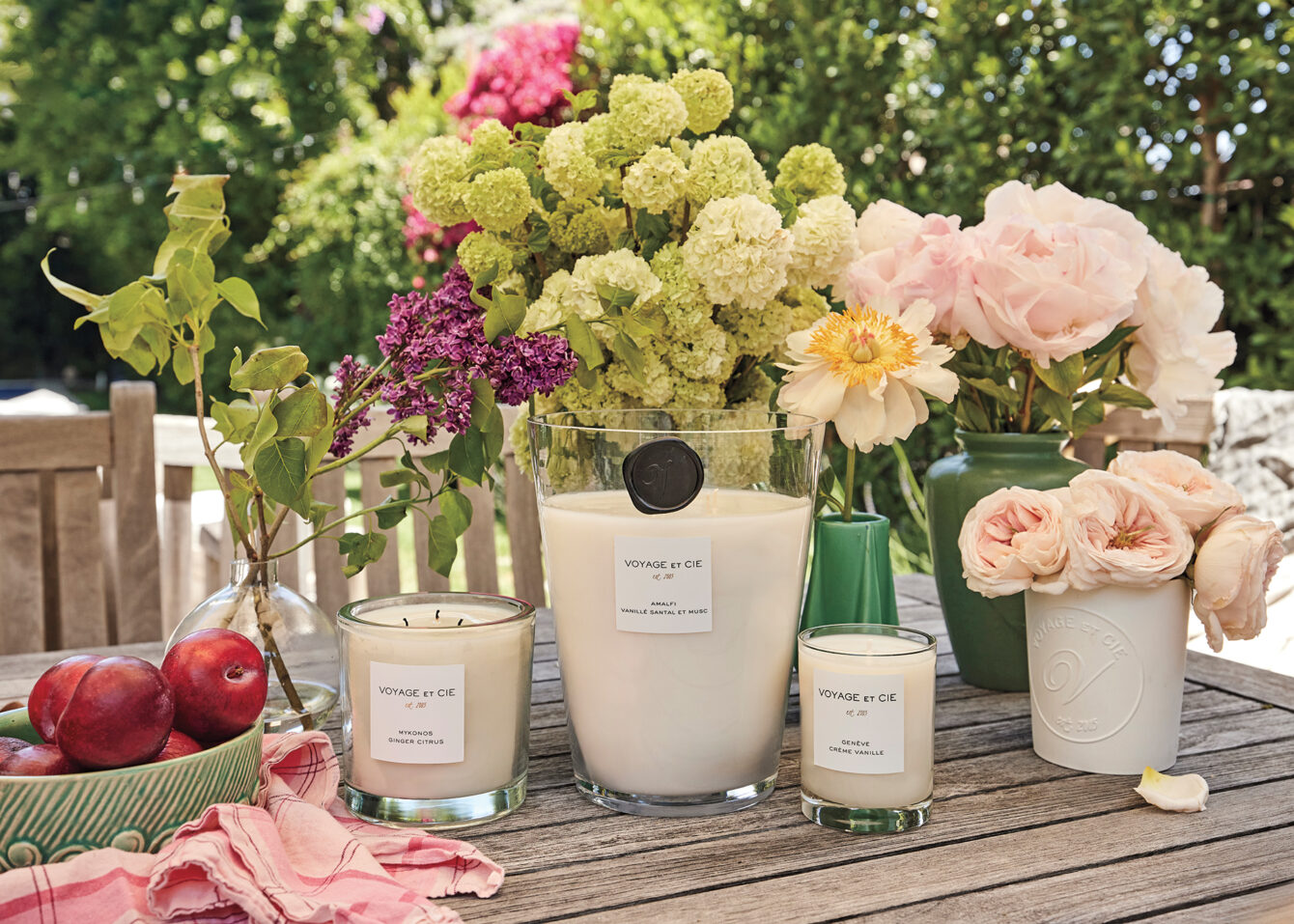
“My clothing business was much bigger than this, but I used to see people walking around in the clothes, and I’d think: This isn’t great; I’m stuck in a manufacturing facility every day. When I’m in my store and I hear people commenting about the candles and complimenting them, I think to myself: I was just making candles for fun. I don’t know how this happened,” she giggles.
As for the secret of her success: “What I’ve learned through the years is, it’s all about the throw—the scent a candle gives off. When something isn’t strong enough, it’s not necessarily the fragrance; it’s the throw.”
She says her unique formula has enabled her to create a product with a scent as strong as those made with paraffin wax. That has been a key. The other secret: using high-quality organic flowers and plants and essential oils, which are expensive. Available in scents like the popular sandalwood-based Sandal and Lime Basil, the classic 4-inch size (the most common size home candle) is $70. The candles in “French cut” glass vases (slightly wider at the top than the bottom and ranging in height from 6 to 16 inches), are priced from $98 to $360.
“I start at a high price point. Sure, there is more profit with candles made from paraffin and less expensive ingredients. That is not what I do.”
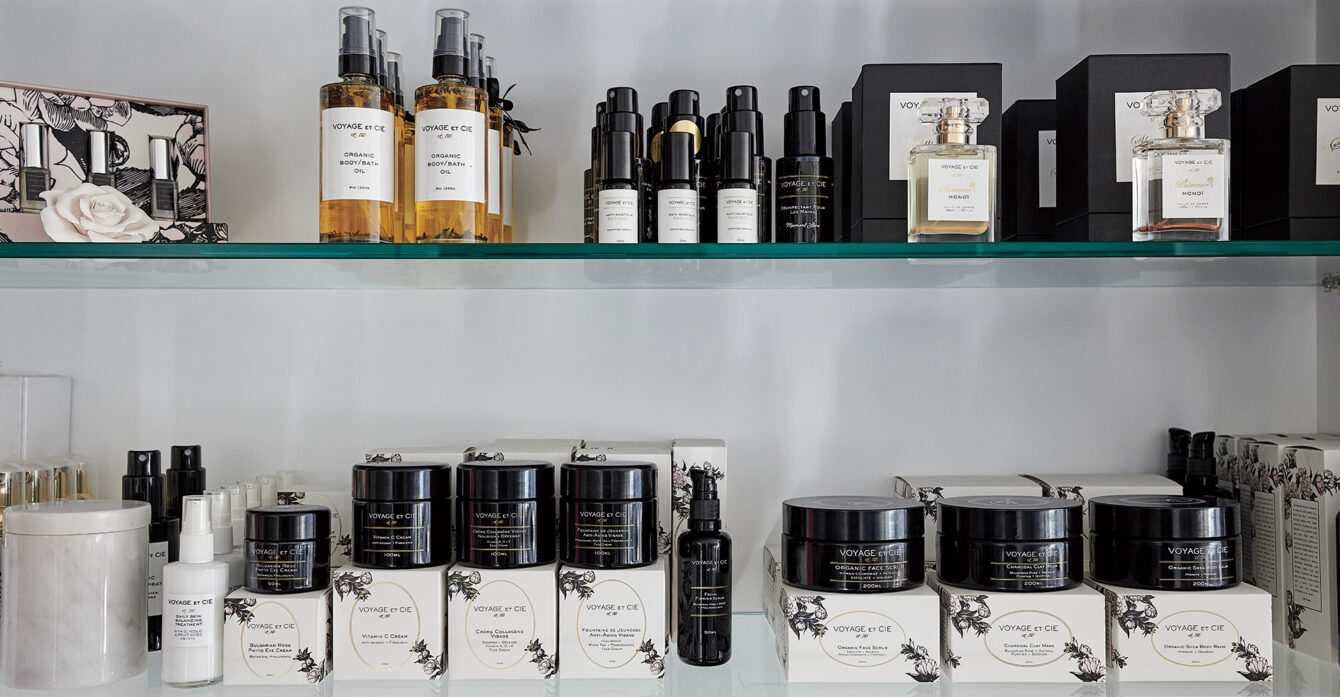
She believes most people think candlemaking is easy, but she considers her craft a meticulous form of art.
“It’s not easy. It is a science. And as with any flammable product, it’s also dangerous. So it has to be controlled. The wicks are a major part of it—the size of the wick. For me, it’s about health. I use wicks that do not have lead and are made from Egyptian cotton.”
With two decades at Voyage et Cie under her belt and her daughter now grown, one might think that Melanie has started thinking about her next chapter. But with an easy smile and the relaxed confidence of a person who owns who she is and her accomplishments, she prefers to focus on the present.
“I love what I do, and I don’t want to retire. I’m always creating new things, like our new line of Santal Laundry Detergent. I still love creating, and that still includes new fragrances. I’d like to see our products in more stores. I’d like to maybe do one in Malibu, maybe one in New York, maybe a small boutique hotel or few of them.”
After that comment, there is a pause in the conversation and she loses eye contact. You can just see her head ticking.
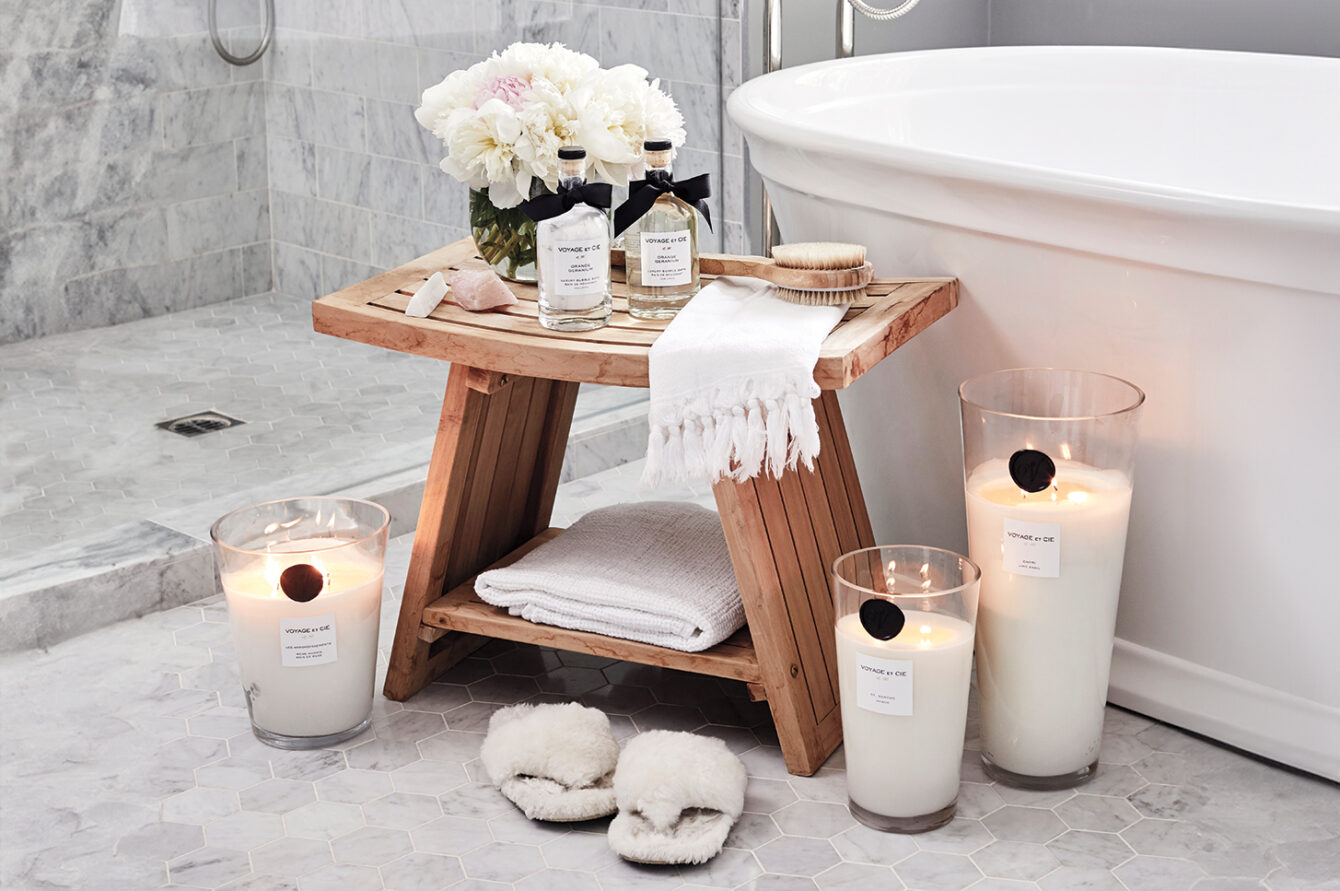
Melanie’s Candle Burning Tips
The first time you light a candle, allow it to burn for at least two hours, until the whole top is liquid with wax. This will help your candle burn more evenly. Before lighting your candle the first time, trim the wick to 1/4-inch length. By shortening the wick you allow it to burn more slowly and also avoid unsightly black smoke marks around the edge of the glass. After blowing out your candle, re-center and straighten the wick. If you have a multiple-wick candle, be sure to burn all wicks simultaneously for an even burn.
French Dip Originated in Los Angeles. But Who Deserves the Credit?
Two chefs. Two claims to fame.
Californians Celebrate the Legacy of Martin Luther King Jr. with Service, Song and Solidarity
Events happening throughout the state January 16.
Hey, Weekend: California Coastin’
We’ve been looking forward to this one.
Get the Latest Stories
